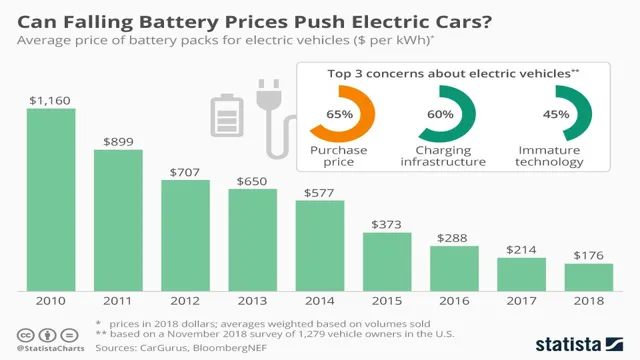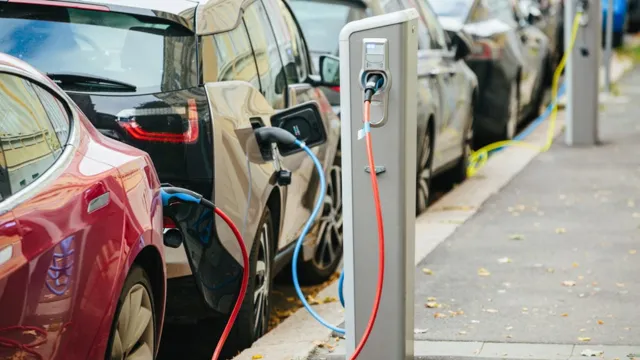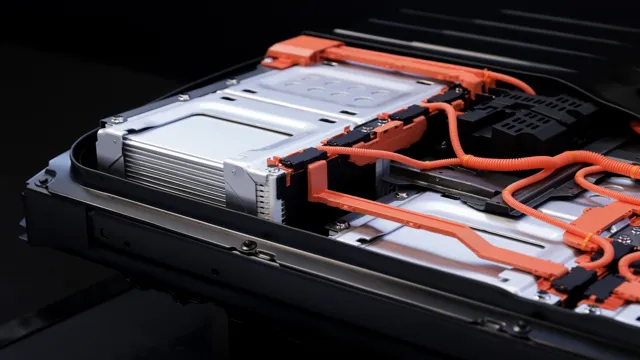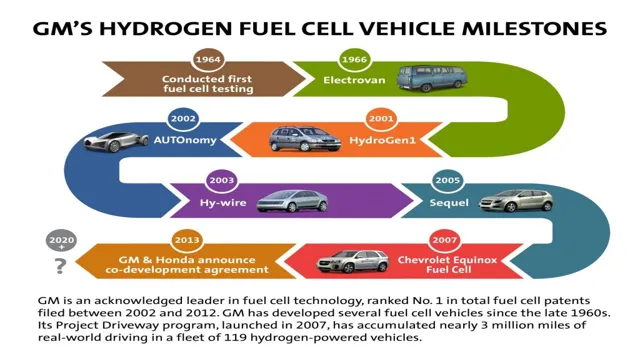The Shocking Truth about the Cost of Batteries in Electric Cars: Are They Really Worth the Hype?
Car batteries are an essential part of our daily lives. They power our cars and make sure we can get where we need to go. However, have you ever wondered about the cost of car batteries? Are they expensive, or are they reasonably priced? In this blog post, we will provide you with an overview of the cost of car batteries.
As you may have guessed, there is no straightforward answer to how much a car battery costs. Many factors impact the cost, including the battery’s brand, size, and type. On average, a car battery can cost anywhere from $50 to $200.
Some high-end specialty batteries can even go up to $500. When thinking about a car battery’s cost, it’s essential to remember that purchasing a quality battery is crucial. A well-made battery will last longer and save you money in the long run.
Additionally, batteries may come with a warranty, so if something goes wrong, you could be entitled to a replacement free of charge. In summary, the cost of a car battery can vary, but investing in a high-quality battery is essential. By doing so, you’ll save money in the long run and ensure that your car battery continues to perform at its best.
Now that you have an understanding of the cost of car batteries let’s dive deeper into the factors that impact their price.
Electric Cars vs. Traditional Cars
One of the biggest factors to consider when comparing electric cars to traditional cars is the cost of the battery in an electric car. While electric cars have many benefits, the battery can be a significant investment. The cost of an electric car battery can vary widely depending on the make and model of the car, but generally ranges from $5,000 to $15,000.
However, it’s important to keep in mind that electric cars are generally cheaper to operate and maintain. They don’t require oil changes or other routine maintenance that traditional cars do, and the cost of electricity is generally lower than the cost of gasoline. Additionally, many electric car manufacturers offer warranties on their batteries, which can help offset the cost.
Ultimately, the cost of the battery is just one factor to consider when deciding whether to purchase an electric car. It’s important to weigh the benefits and drawbacks of electric cars and traditional cars to determine which makes the most sense for your lifestyle and budget.
Comparison of battery costs in electric cars vs. gas-powered cars
When it comes to comparing battery costs in electric cars vs. gas-powered cars, there is no doubt that electric vehicles have a higher upfront cost due to its battery technology. However, it’s essential to consider the long-term benefits and costs of both types of cars.
Electric cars’ battery costs are likely to decrease as technology advances, whereas gas-powered cars’ fuel costs are constantly increasing. Additionally, electric cars’ battery life is longer than traditional cars’ engines, and they require minimal maintenance. While some may argue that gas-powered cars are cheaper due to lower upfront costs, it’s crucial to think about long-term costs and the environmental impact.
Electric cars are a more sustainable and efficient option in the long run.
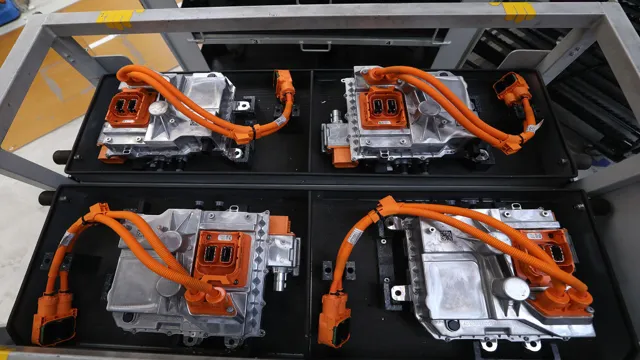
Factors Affecting Battery Costs
The cost of the battery in an electric car is one of the most significant factors affecting the overall price of the vehicle. Several factors contribute to battery costs, including the type of battery used, the size and capacity of the battery, and the demand for the battery materials. Lithium-ion batteries, the most common type of battery used in electric cars, are relatively expensive to manufacture, and the cost of the materials used in these batteries, such as cobalt and lithium, can fluctuate depending on global supply and demand.
Additionally, larger batteries with higher capacities can increase the cost of an electric car significantly. The demand for electric vehicles is also a factor affecting battery costs; as more people purchase electric cars, the demand for batteries increases, driving up prices. Despite these challenges, many experts predict that battery costs will continue to decrease in the coming years, making electric vehicles more affordable for consumers.
Battery size, type, and chemistry
Battery costs vary due to several factors, such as battery size, type, and chemistry. The larger the battery, the more expensive it becomes, and the same goes for specific types of batteries like lithium-ion, nickel-metal hydride, and lead-acid, which each have their own pros and cons. For example, lithium-ion batteries are more expensive but are lighter and have a longer lifespan compared to lead-acid batteries, which are heavier and have shorter lifespans.
Additionally, the battery’s chemistry plays a role in cost, as certain chemicals used in batteries could be more expensive than others. All these factors contribute to the final cost of the battery product. Therefore, it’s necessary to consider these factors when choosing the right battery type to fit your budget and meet your needs.
Manufacturing process
Battery costs are affected by several factors during the manufacturing process, including the cost of raw materials, labor, and production equipment. The raw material cost can vary significantly based on the supply and demand for the materials and their availability in the market. Additionally, labor costs and equipment maintenance costs can also affect battery production costs.
Another significant factor that affects battery costs is the efficiency of the manufacturing process. A streamlined process, with optimized production lines and automated equipment, can potentially reduce costs, while inefficient processes may increase them. The cost of energy required for manufacturing can also contribute to the total cost of batteries.
Companies that invest in renewable energy sources such as solar or wind energy can lower their production costs by reducing their dependence on fossil fuels. As the demand for batteries continues to grow, battery manufacturers will need to find ways to cut costs while improving production efficiency and reducing their environmental impact. Overall, improving the manufacturing process and considering all relevant cost factors can lead to more affordable and sustainable batteries for consumers and businesses alike.
Supply and demand
The cost of batteries is often affected by the basic principle of supply and demand. As the demand for batteries rises due to increased use in various sectors such as electric vehicles, renewable energy storage, and portable devices, the prices of batteries tend to go up. Additionally, the cost of raw materials, especially lithium, cobalt, and nickel, which are used to manufacture batteries, also impact the overall cost of batteries.
Any fluctuations in the supply of these materials can cause prices to rise or fall. Technological advancements and efficiencies in battery manufacturing can also help reduce the cost of batteries. As companies invest in research and development to make batteries more efficient and cost-effective, prices may eventually come down.
With the increasing demand for eco-friendly energy solutions, battery technology is only set to become even more critical, and it will be essential to keep battery costs as affordable as possible to encourage wider adoption.
Current Market Prices
One of the primary reasons that electric cars have not yet achieved mainstream popularity is the cost of batteries. Batteries are the heart of any electric vehicle, and the cost of a single battery can make up a significant portion of the total cost of an electric car. However, as technology continues to advance and demand for electric vehicles rises, the cost of batteries has been steadily decreasing.
In fact, according to some reports, the cost of batteries has fallen by as much as 87% over the past decade. As of 2021, the cost of a battery for an electric car can range from $125 to $300 per kWh, depending on the type and size of the battery. While this is still more costly than traditional gasoline-powered vehicles, the steady decrease in battery costs, driven by advancements in technology and increased demand, is making electric cars a more feasible and affordable option for many consumers.
Average cost of electric car batteries
Electric car batteries have been a hot topic of conversation lately, and for good reason. As more and more people are looking to switch to electric vehicles, the cost of electric car batteries has become a major factor. So, what is the current market price for these batteries? On average, electric car batteries can cost anywhere from $5,000 to $15,000.
However, this cost can vary depending on the make and model of the vehicle, as well as the capacity of the battery. It’s important to note that while these prices may seem high, the cost of battery technology is rapidly decreasing as more companies invest in this field. Additionally, with the long-term savings on fuel costs and the overall environmental benefits of electric vehicles, purchasing one of these cars may be worth the initial investment.
Price comparison of different electric car models
Electric car prices can vary greatly depending on the model you choose. The current market offers a wide range of options for electric car buyers, with price points ranging from under $25,000 for the Nissan Leaf to over $100,000 for the Tesla Model S. Other popular models, such as the Chevrolet Bolt, the Ford Mustang Mach-E, and the Volkswagen ID.
4, typically fall in the middle of this price range. Keep in mind that these prices do not include any potential tax credits or rebates, which can significantly reduce the cost of electric car ownership. When comparing prices, it’s also important to consider factors such as range, battery life, and charging time to determine which model best suits your needs.
The Future of Battery Costs
The cost of batteries in electric cars has been a hot topic for years, with car manufacturers striving to create more affordable and efficient batteries. In recent times, there has been a significant reduction in battery costs due to advancements in technology, research, development, and economies of scale. The increasing demand for electric vehicles has spurred battery production, which, in turn, has led to a fall in battery prices.
In the near future, experts predict that the cost of batteries would significantly reduce, as more research is done to create cheaper and more advanced batteries. As a result, more people would be willing to switch to electric vehicles, with lower battery costs making it more accessible to a wider range of consumers. Ultimately, the future looks bright for battery costs in electric cars, as the market continues to grow while technological advancements lower the cost, making it more affordable for everyone.
Predictions and trends in battery production and pricing
The future of battery costs looks promising as technological advancements and innovations are driving down production prices dramatically. The introduction of better materials, longer-lasting battery life, and increased efficiency in the manufacturing process is expected to result in a lower cost per kilowatt-hour in the future. The Tesla megafactory, for example, is already producing batteries at a lower cost, and expects to scale down prices by at least 30% by the end of this year.
Furthermore, major automobile manufacturers have started investing in the mass production of electric cars, which is expected to drive more demand for cheaper and efficient batteries. With the increased competition among battery manufacturers, it is expected that prices will continue to trend down, making electric cars more affordable for the average consumer. It’s safe to say that the future of battery production costs is looking bright.
Conclusion
In the end, the cost of a battery in an electric car is like investing in a long-lasting relationship. Yes, it may seem expensive upfront, but once you’ve made the commitment, the benefits far outweigh the costs. With a combination of government incentives and advancements in technology, the price tag continues to come down, making it more accessible for everyone to join the electric revolution.
So, if you’re ready to take the plunge, go ahead and make that investment – your wallet and the planet will thank you.”
FAQs
What is the typical cost of battery replacement in an electric car?
The cost of replacing an electric car battery can vary depending on the make and model, but on average it can cost anywhere from $5,500 to $15,000.
How often do you need to replace the battery in an electric car?
The lifespan of an electric car battery varies based on the car’s usage and driving conditions, but most batteries last between 8 and 10 years before needing replacement.
Can you replace an electric car battery yourself?
It is not recommended to replace an electric car battery yourself as it can be dangerous and requires specialized equipment. It is best to have a professional handle the replacement.
Is there any warranty on electric car batteries?
Many electric car manufacturers offer warranties on their batteries, typically ranging from 8 to 10 years or a certain number of miles, whichever comes first. It’s important to check the details of your specific warranty.

